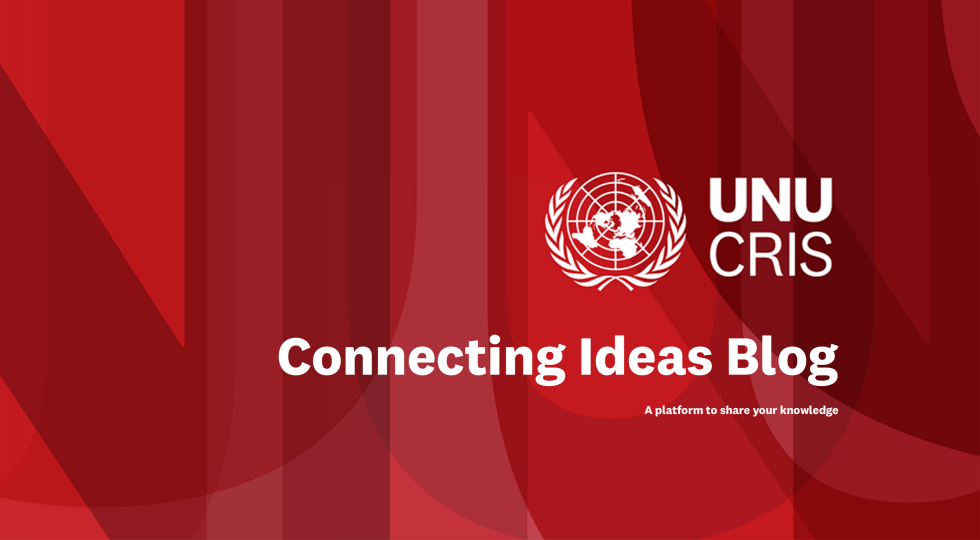While On the Road: Decoloniality and Its Pitfalls


Research Intern, UNU-CRIS
15 June 2023 | #23.06 | The views expressed in this post are those of the author(s) and may not reflect those of UNU-CRIS.
Only in recent years has decoloniality emerged as a popular concept in academic circles. In the last two decades, a plethora of articles have been published that explore the complex implications of this concept in various disciplines and regions. The genesis of decoloniality can be traced back to centuries ago, but it became popular through the works of influential Latin American intellectuals such as Walter Maignolo, Anibal Quijano, Enrique Dussel, and Ramon Grosfoguel, whose ideas have been gradually scholarly and politically recognised (Mignolo and Walsh, 2018). At its core, decoloniality represents both an academic and political movement seeking to dismantle the lingering effects of colonialism by acknowledging the colonial nature of the existing global system. Thanks to decoloniality, previously ignored, subjugated, and exploited epistemologies and praxis can be reclaimed, as they are seen as vital components in the pursuit of a more equitable and just society. Partisans of decoloniality advocate for radical change and a world where pluralistic systems can thrive and coexist in harmony, propelling an inclusive and diverse new order where colonial legacies are totally abolished.
Nevertheless, despite its positive aims, it is imperative to thoroughly examine the potential loopholes that might prevent decoloniality from benefiting humanity and Mother Nature. For intellectual honesty, I wish to point out that this blog is a personal reflection, drawing on my own lived experiences, previous training, and discussions with my supervisor (recent readings) and colleagues. Most significantly, it is informed by my recent engagement with the topic after joining UNU-CRIS. At the outset of my internship, my supervisor, Professor Ine Lietaert, tasked me with exploring the critical scholarship of Africa on Social Work. As I delved into this inquiry, it became increasingly evident that decolonization is the crux of critical scholarship. This preliminary realization, along with my previous experiences, compelled me to reflect further on the general topic of decoloniality and its potential pitfalls.

Decoloniality's Potential Loopholes and Pitfalls
First, it is noteworthy that Europe is embracing decoloniality as a scholarly exercise and movement, possibly due to the realization that Europe may lose its political hegemony and its position as the center of gravity in the global arena. The emergence of Asian and other countries from the South, particularly China, as formidable competitors may have triggered fears of power losses. Furthermore, China has built strong ties and a solid presence in Africa and many other regions. The world order seems to have been troubled, and it is therefore crucial that the colonial nature of the global system is aggressively acknowledged to reconcile Europe's past and ensure a dominant voice for Europe in decolonial conversations.
However, the European engagement in decoloniality might backfire in two ways, contradicting the romanticized notion of recognizing the knowledges and existence of multiple beings and the willingness to deal with colonial legacies. One: Europe may use the so-called indigenous knowledge and previously suppressed epistemologies as a remedy for capitalism and liberalism, which are perceived to be in their twilight years. Although appropriation of them per se is not a problem, this could strengthen Europe's position in the increasingly competitive world order at the expense of the owners of those epistemologies, turning into a new strategy for perpetuating Europe’s colonial power. Two: knowledge is power, and as such, the more one understands the source of others' episteme and praxis, the more power one has over them. This, in turn, may lead to exploitation and subjugation, which could undermine the very principles that underpin decoloniality. Considering these possible outcomes, decoloniality might not be fundamentally different from colonialism, but rather, they could be two sides of the same coin.
Secondly, as a political project, decoloniality seeks to challenge and change the status quo, emancipate marginalized communities, and advocate for freedom and revolution. In this sense, decoloniality shares similar features with socialism. They even share the same paternalistic attitude. Colonialism at its highest imperialistic phase was fueled by the rhetoric of the "white man's burden”, which is namely the colonizers' responsibility for "civilizing" non-Western societies. As we now know, this deceptive assumption led to disastrous consequences with ongoing negative impacts and is the reason decoloniality was conceived in the first place. Similarly, socialism aimed to liberate the global population from the exploitation of capitalism and create a utopian society. However, it also failed miserably, resulting in countless losses and clashes from Russia to Ethiopia due to the antagonism (value - cultural, political and economic) and conflicts it has fueled.
On the other hand, by attributing epistemologies and praxis solely to Europe and calling for their decoloniality, we may inadvertently undermine or overlook the contributions of non-European societies to those epistemologies and practices. There has always been an exchange of ideas and practices among different societies, and the European way of doing things has undoubtedly borrowed from other civilizations and integrated them into its system (Therefore, it is challenging to argue that the European perspective or way of doing things is exclusively European, since it springs from centuries of interaction and exchange with other civilizations). Additionally, decoloniality tends to assume that there is only one Western or European set of values, epistemology, or practice, and it overlooks diversity among them. Western societies are not homogeneous and have varied colonial legacies and relationships with colonized others.

The Ethiopian Case
Fourthly, there is always a possibility that a political project may go astray. One way decoloniality could go wrong is through the creation of otherness. By categorizing existing knowledge systems as Eurocentric, a distance is set between people and the knowledge systems, which can provoke strained relationships. Consequences of this approach have been witnessed in Ethiopia, where the “decolonial”[1] stance has been applied with disastrous effects in the last four years, resulting in the death of thousands of people and the displacement of millions of Ethiopians. Hardliner leftists exploit “decolonialism” as a political tool to foster their separatist and exclusionary agendas. Since Prime Minister Abiy Ahmed's ascent to power in 2018, the government has pursued policies that seek to reconfigure Ethiopian society's socio-political and economic frame. However, these policies and practices have pushed the country to the brink of total state failure. By creating otherness and disrupting people's way of life. In the context of Ethiopia, the deconstructive or decolonial approach entails the demise of existing knowledge and praxis, which are criminalized in the name of indigenization and decolonization. These choices are also contributing to the loss of Ethiopian millenary indigenous social fabric.
Additionally, Abiy recurred to this set of values to gain legitimacy from specific groups and this strategy then became his peculiar modus operandi. He adopted mantras like “indigenous ideas” to deceive people and as a tool of governance. Soon after he came to power, he introduced the concept of "Medemer"(synergy) as an indigenous idea that could lead Ethiopia to prosperity and help it overcome its long-standing problems while strengthening its unity. However, this was mere rhetoric and this declaration did not prevent the deaths and displacements of millions of people. Sheer numbers of inhabitants live in constant fear for their safety and property, while the country is on the verge of collapse. There is no guarantee that decoloniality is different from Medemer, empty rhetoric that fails to truly transform people’s lives.
Finally, decoloniality can also perpetuate the problems of colonialism through its constant engagement with it. For instance, as someone who did not grow up in a colonial state. I did not experience feelings of victimhood, exploitation, or subordination. But this does not mean that I do not acknowledge the devastating consequence of colonialism on people’s lives, and I am not a “victim” of it. However, through discourses and exposure to decoloniality and coloniality, I find myself internalizing these experiences, which I did not have through direct exposure before. The way we frame and talk about decoloniality has the potential to give rise to a victimhood culture and, in turn, reinforce colonialism. The prevailing discourses on the topic may, in fact, inadvertently contribute to the perpetuation of coloniality, rather than addressing it.
Conclusions
In conclusion, decoloniality will certainly continue to evolve as an intellectual and political project until it will achieve its ultimate goal, it will be supplanted by alternative ones, or it will come short in giving effective answers. Regardless of its fate, every scholar, policy, or public discourse that aims at changing society, but focuses more on what it "should" be rather than what it "could" be makes me uncomfortable. Beyond the promises of decoloniality, we’d better locate and deal with its pitfalls while on the road.
